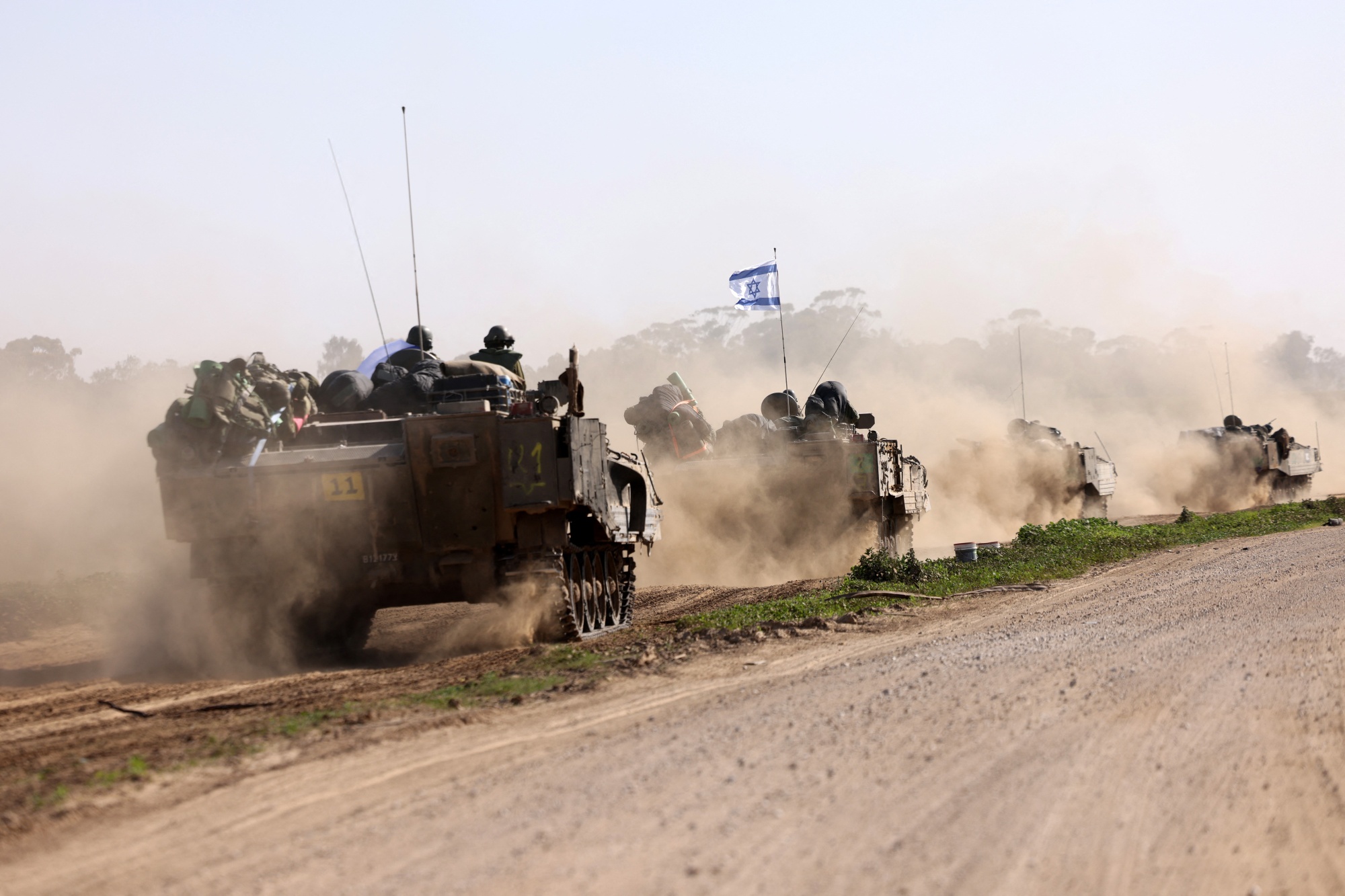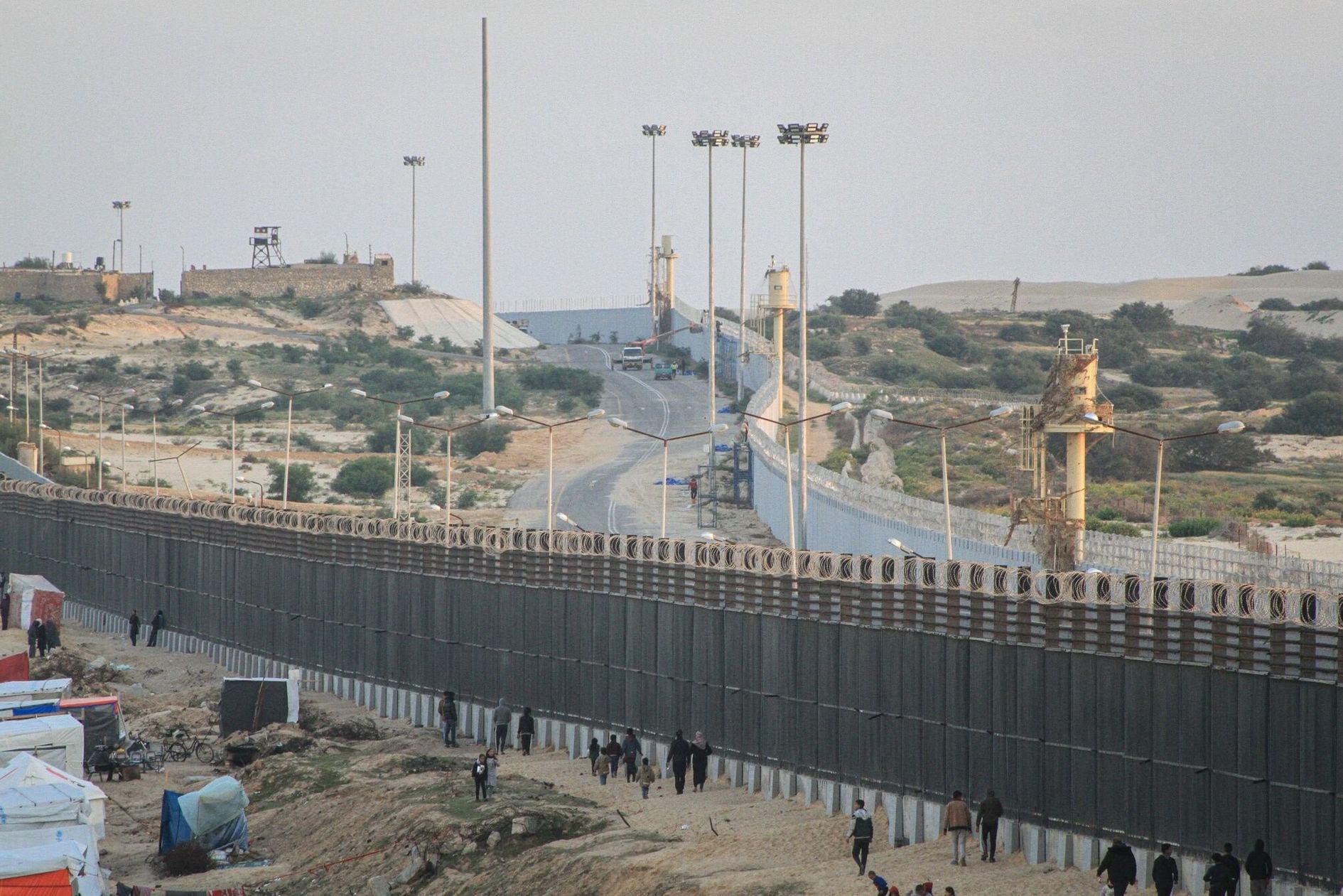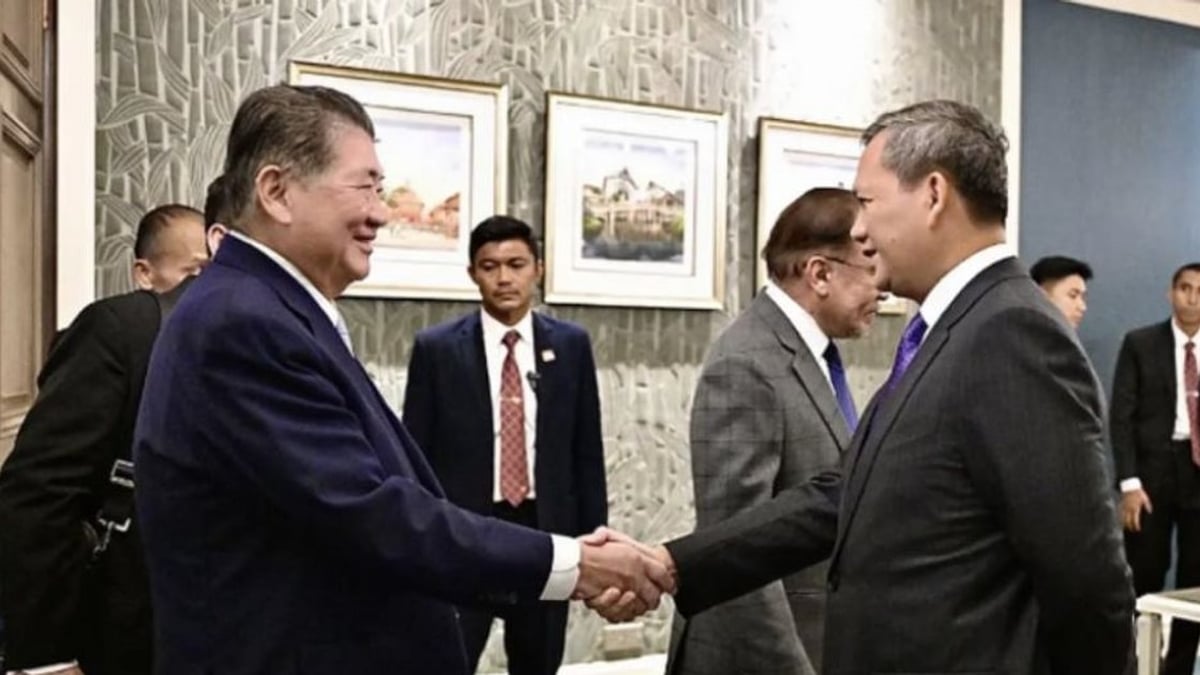What is Israel's plan?
Israel said it would send ground forces to fight Hamas in Rafah, a city south of Gaza on the border with Egypt where more than 1 million civilians have taken refuge, a move that could jeopardize relations with Cairo, a key mediator between the sides.
“We are continuing this campaign and we will also go to places where we have not fought before in the central and southern strip, especially the last remaining focus in the hands of Hamas - Rafah,” Israeli Defense Minister Yoav Gallant said at a recent press conference.

Israel is planning a ground attack on the border city of Rafah, which it sees as a gateway for Hamas to smuggle weapons into Gaza - Photo: Bloomberg News
Mr Gallant did not provide details about how the Israeli military would target Rafah, where it has carried out air strikes since the fighting began.
The US is pressing Israel to accept a deal that would pave the way for a permanent ceasefire and the release of all hostages still held. US Secretary of State Antony Blinken will travel to the region this week for his fifth visit since October 7, including stops in Israel and the West Bank to discuss the humanitarian crisis and other issues with leaders there.
Egyptian officials say Cairo is pressing Israel to halt plans to fight on its border, which has become a haven for displaced Gazans. Cairo fears Palestinians could try to sneak into the country to escape the fighting, creating instability on the border.
According to several Egyptian officials, Israel has privately told Cairo that it will first allow residents of Rafah to evacuate back to areas they had previously fled before launching military operations in the border city.
“The Rafah operation is still being planned,” an Israeli official said. “The plan will address operational challenges as well as the dense population in Rafah,” the official added, stressing that Israel is trying to separate Hamas infrastructure in Rafah from the civilian population.
Residents of Rafah say tents have sprung up along the border with Egypt. The city now has about five times its normal population. Prices have skyrocketed and residents say they are struggling to get basic necessities like food and water.
The United Nations said in a report released on Monday that most of the newly displaced people in Rafah have access to only 1.5 to 2 liters of water per day for all their needs, leading to a significant increase in cases of chronic diarrhea among children.
The decisive battle of the war?
Israeli officials say they cannot end the four-month war with Hamas without completely destroying the infrastructure the militant group uses to smuggle weapons across the border. Tel Aviv says that if they fail to do so, Hamas will be able to rearm quickly.

Displaced Palestinians walk along the border wall with Egypt in Rafah - Photo: Bloomberg News
A ground offensive on Rafah may be Israel's biggest challenge of the war, both strategically and geopolitically , and is fraught with tactical, political , and humanitarian challenges.
The Israeli army will have to operate in a small metropolis that is now home to more than 1 million displaced people, many living in tents on the streets.
Shortly after Israel informed Egypt that it planned a ground operation in Rafah, Egyptian officials warned that if any Palestinians were forced to cross into the Sinai Peninsula, the decades-old peace treaty between the two sides would be suspended.
Israel has also in recent weeks pushed Egypt to accept an Israeli military presence along the Gaza-Egypt border and allow Israeli personnel to patrol Egyptian territory to crack down on what it says is Hamas arms smuggling.
Egypt has rejected accusations of failing to prevent arms smuggling as well as Israel's proposal for a presence on the border, saying it would be a violation of its sovereignty.
“It must be seriously stressed that any move by Israel in this direction would pose a serious threat to Egyptian-Israeli relations,” said Diaa Rashwan, chairman of Egypt’s State Information Authority.
Analysts say a ground offensive in Rafah is unlikely as Israel remains bogged down in southern Gaza's largest city, Khan Younis, the centre of fighting for more than two months.
Israeli military officials said their forces had taken control of most of the area, but fierce fighting continued in a construction zone southwest of the city.
Israel is also facing the re-emergence of Hamas in areas of northern Gaza, which the Israeli army withdrew from after lengthy battles to capture the area at the start of the war. In recent days, Israel has been forced to send troops back into those areas to re-establish control.
Israeli officials say that the Rafah underground tunnels, which run along the border with Egypt, are a major route for smuggling weapons and equipment into the strip. Establishing more control over the border is therefore key to demilitarizing Hamas and other militant groups in Gaza, while analysts say plans to establish a buffer zone on the Palestinian side of the border are still in the works.
“Without finishing Rafah, there can be no talk of changing the reality in Gaza… Leaving Rafah as an open door between the world and Gaza means that Hamas will immediately begin rebuilding its military capabilities,” said Michael Milshtein, former director of Palestinian affairs for Israel’s military intelligence agency.
Nguyen Khanh
Source































![[Photo] National Assembly Chairman attends the seminar "Building and operating an international financial center and recommendations for Vietnam"](https://vphoto.vietnam.vn/thumb/1200x675/vietnam/resource/IMAGE/2025/7/28/76393436936e457db31ec84433289f72)





































































Comment (0)